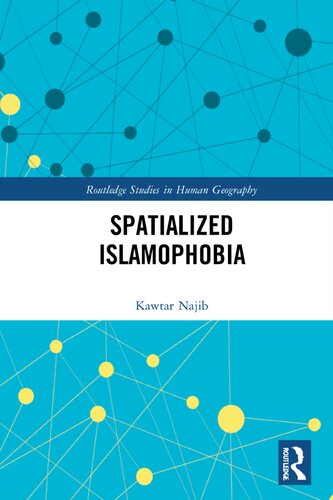

Most ebook files are in PDF format, so you can easily read them using various software such as Foxit Reader or directly on the Google Chrome browser.
Some ebook files are released by publishers in other formats such as .awz, .mobi, .epub, .fb2, etc. You may need to install specific software to read these formats on mobile/PC, such as Calibre.
Please read the tutorial at this link: https://ebookbell.com/faq
We offer FREE conversion to the popular formats you request; however, this may take some time. Therefore, right after payment, please email us, and we will try to provide the service as quickly as possible.
For some exceptional file formats or broken links (if any), please refrain from opening any disputes. Instead, email us first, and we will try to assist within a maximum of 6 hours.
EbookBell Team

5.0
88 reviewsThis book demonstrates the spatialized and multi-scalar nature of Islamophobia. It provides ground-breaking insights in recognising the importance of space in the formation of anti-Muslim racism.
Through the exploration of complementary data, both from existing quantitative databases and directly from victims of Islamophobia, applied in two important European capitals - Paris and London - this book brings new materials to research on Islamophobia and argues that Islamophobia is also a spatialized process that occurs at various interrelated spatial scales: globe, nation, urban, neighbourhood and body (and mind). In so doing, this book establishes and advances the new concept of ‘Spatialized Islamophobia’ by exploring global, national, urban, infra-urban, embodied and emotional Islamophobias as well as their complex interrelationships. It also offer a critical discussion of the geographies of Islamophobia by pointing out the lack of geographical approaches to Islamophobia Studies. By using self-reflexivity, the author raises important questions that may have hampered the study of ‘Spatialized Islamophobia’, focusing in particular on the favoured methodologies which too often remain qualitative, as well as on the whiteness of the discipline of Geography which can disrupt the legitimacy of a certain knowledge.
The book will be an important reference for those in the fields of Human Geography, Sociology, Politics, Racial Studies, Religious Studies and Muslim studies.